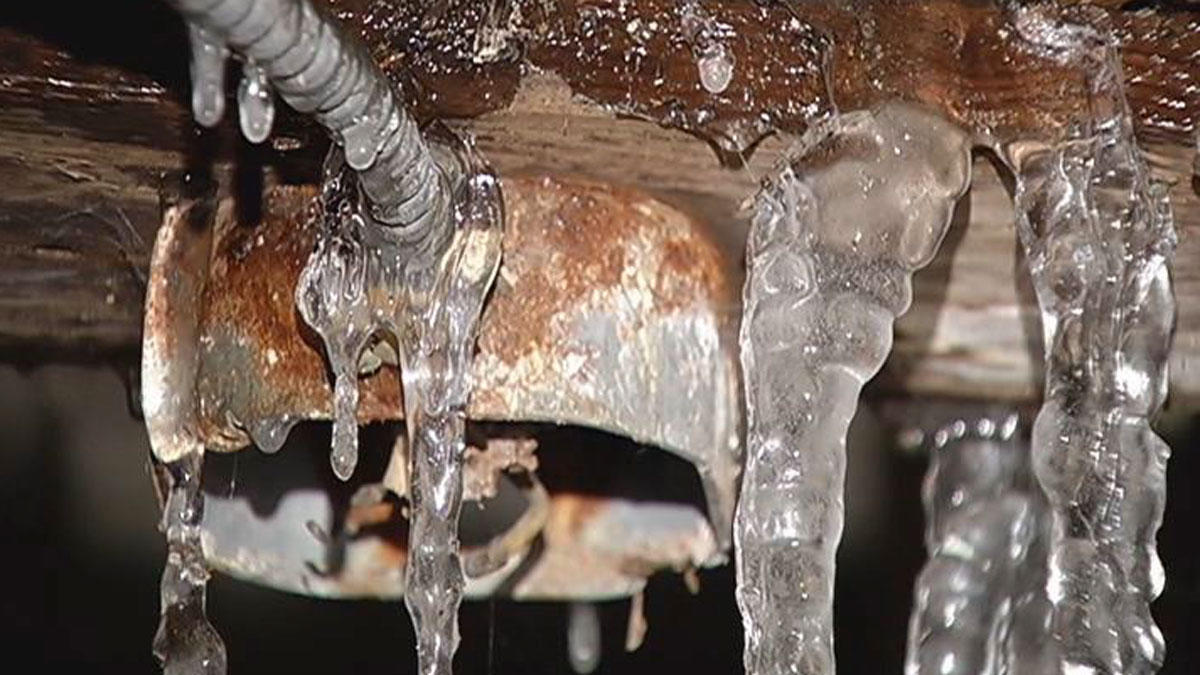Ways to Defend Your Pipes from Cold Weather: Professional Tips
Ways to Defend Your Pipes from Cold Weather: Professional Tips
Blog Article
Listed here underneath you can discover some good quality additional info in relation to Helpful Tips to Prevent Frozen Pipes this Winter.

Cold weather can wreak havoc on your plumbing, particularly by freezing pipelines. Below's just how to stop it from occurring and what to do if it does.
Introduction
As temperatures drop, the threat of icy pipes increases, possibly causing costly repairs and water damages. Comprehending how to stop frozen pipes is critical for house owners in chilly environments.
Comprehending Icy Pipes
What creates pipes to ice up?
Pipes freeze when revealed to temperatures listed below 32 ° F (0 ° C) for extended periods. As water inside the pipelines freezes, it broadens, taxing the pipeline wall surfaces and potentially creating them to break.
Threats and damages
Icy pipelines can bring about water system interruptions, home damages, and expensive repairs. Burst pipelines can flooding homes and cause substantial architectural damages.
Indicators of Frozen Piping
Recognizing icy pipelines early can avoid them from rupturing.
Exactly how to identify frozen pipelines
Seek reduced water flow from faucets, uncommon smells or noises from pipelines, and noticeable frost on subjected pipes.
Avoidance Tips
Protecting prone pipelines
Cover pipes in insulation sleeves or use warmth tape to secure them from freezing temperatures. Concentrate on pipelines in unheated or exterior areas of the home.
Heating strategies
Keep interior areas sufficiently heated, particularly areas with pipes. Open cupboard doors to allow cozy air to circulate around pipes under sinks.
Protecting Outside Pipes
Garden pipes and outdoor faucets
Separate and drain garden hoses prior to winter. Set up frost-proof faucets or cover exterior faucets with protected caps.
What to Do If Your Pipelines Freeze
Immediate activities to take
If you suspect frozen pipes, maintain taps available to alleviate pressure as the ice thaws. Use a hairdryer or towels soaked in warm water to thaw pipelines gradually.
Long-Term Solutions
Structural adjustments
Think about rerouting pipelines away from exterior wall surfaces or unheated areas. Include extra insulation to attic rooms, basements, and crawl spaces.
Updating insulation
Buy high-grade insulation for pipelines, attics, and wall surfaces. Correct insulation assists keep constant temperatures and minimizes the risk of frozen pipes.
Verdict
Stopping icy pipes calls for proactive steps and fast responses. By recognizing the reasons, indications, and safety nets, property owners can secure their pipes during cold weather.
Helpful Tips to Prevent Frozen Pipes this Winter
UNDERSTANDING THE BASICS: WHY PIPES FREEZE AND WHY IT’S A PROBLEM
Water freezing inside pipes is common during the winter months, but understanding why pipes freeze, and the potential problems it can cause is crucial in preventing such incidents. This section will delve into the basics of why pipes freeze and the associated problems that may arise.
THE SCIENCE BEHIND FROZEN PIPES
When water reaches freezing temperatures, it undergoes a physical transformation and solidifies into ice. This expansion of water as it freezes is the primary reason pipes can burst. As the water inside the pipe freezes, it expands, creating immense pressure on the walls. If the pressure becomes too great, the pipe can crack or rupture, leading to leaks and water damage.
FACTORS THAT CONTRIBUTE TO PIPE FREEZING
Low Temperatures: Extremely cold weather, especially below freezing, increases the risk of pipes freezing. Uninsulated or Poorly Insulated Pipes: Pipes located in unheated areas, such as basements, crawl spaces, or attics, are more prone to freezing. Insufficient insulation or lack of insulation altogether exacerbates the problem. Exterior Wall Exposure: Pipes running along exterior walls are susceptible to freezing as they encounter colder temperatures outside. Lack of Heating or Temperature Regulation: Inadequate heating or inconsistent temperature control in your home can contribute to frozen pipes. PROBLEMS CAUSED BY FROZEN PIPES
- Pipe Bursting: As mentioned earlier, the expansion of water as it freezes can cause pipes to burst, resulting in significant water damage.
- Water Damage: When pipes burst, it can lead to flooding and water damage to your property, including walls, ceilings, flooring, and personal belongings.
- Structural Damage: Prolonged exposure to water from burst pipes can compromise the structural integrity of your home, leading to costly repairs.
- Mold and Mildew Growth: Excess moisture from water damage can create a favorable environment for mold and mildew growth, posing health risks to occupants.
- Disrupted Water Supply: Frozen pipes can also result in a complete or partial loss of water supply until the issue is resolved.
WHY CERTAIN PIPES ARE MORE PRONE TO FREEZING
- Location: Pipes located in unheated or poorly insulated areas, such as basements, crawl spaces, attics, or exterior walls, are at higher risk of freezing.
- Exterior Pipes: Outdoor pipes, such as those used for irrigation or exposed plumbing, are particularly vulnerable to freezing as they are directly exposed to the elements.
- Supply Lines: Pipes that carry water from the main water supply into your home, including the main water line, are critical to protect as freezing in these lines can affect your entire plumbing system.
- Underground Pipes: Pipes buried underground, such as those connected to sprinkler systems or outdoor faucets, can be susceptible to freezing if not properly insulated.
https://busybusy.com/blog/helpful-tips-to-prevent-frozen-pipes-this-winter/

I'm very intrigued by How to prepare your home plumbing for winter weather and I really hope you appreciated our post. Loved our piece of writing? Please share it. Let someone else locate it. We recognize the value of your readership.
Visit My Website Report this page